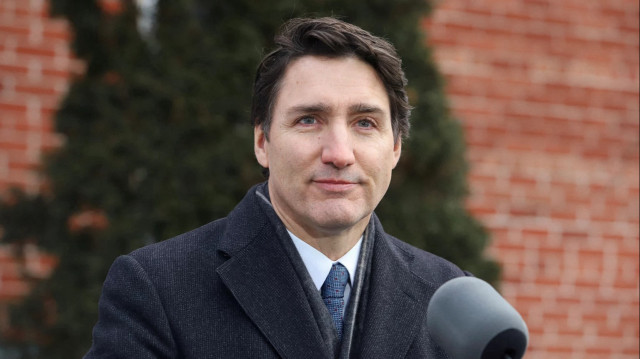
Leader who had politics in his blood leaves behind mixed legacy
Canadian Prime Minister Justin Trudeau resigned Monday as prime minister and leader of the Liberal Party, pushed out by fellow Liberal lawmakers.
It is an inglorious ending for a man who piloted Canadians for a decade and has politics in his blood.
His late father Pierre Trudeau was prime minister twice, from 1968 to 1979 and 1980 to 1984.
Young Justin often accompanied his father on trips to countries around the globe, first as a child and then as a fledgling teenager.
Before entering politics, the young protégé worked as a teacher. He took the political plunge in 2008, winning as a Quebec Member of Parliament and subsequently becoming head of the party in 2013.
- Rock star popularity
“My fellow Liberals, it is with great respect for those who have stood in this place before me, and great resolve to do the hard work required in front of us, that I accept, with humility, the confidence you have placed in me,” Trudeau told those at the leadership convention.
Trudeau was buoyed by his party and Canadians, and he swept into power riding a groundswell of support in the 2015 election, and the new prime minister formed a majority government.
The handsome 43-year-old enjoyed a rock star popularity not only in Canada but wherever he travelled worldwide. His picture was on the cover of magazines as he basked in the limelight.
Trudeau said the election of his Liberals promised “sunny ways” and “sunny days” ahead for Canadians.
But change was in the wind four years later.
In 2019, he was re-elected, but with a minority, and led Canada through the COVID pandemic.
During the first two terms, he reformed the Senate and managed to renegotiate a free-trade agreement with the US and Mexico, no small feat with Donald Trump as the American president.
But in that 2019 election, Trudeau won with the lowest vote share for a party that formed a single-party minority government.
- Erosion of power
In the 2021 election, the Liberals once again formed a fragile government, precarious enough that Trudeau hung on to power by signing what is called a “supply and confidence agreement” with the New Democrat Party (NDP).
The support meant Trudeau had to bring in some legislation near and dear to the NDP, including a Canadian dental plan.
Meanwhile, his personal life took a downturn in 2023.
The father of three – Xavier, born in 2007, Ella-Grace in 2009 and Hadrien in 2014 – separated from his wife Sophie in 2023 after 18 years of marriage.
It was an amicable split, at least publicly, with Trudeau saying “we remain a close family with deep love and respect for each other.”
There was also turmoil in office.
As time wore on, Trudeau's public popularity began to tank. Inflation was rampant and housing prices rose dramatically. Whether right or not, much of the blame for the maladies was directed at Trudeau.
One after the other public poll put the Conservatives under new leader Pierre Poilievre into a double-digit lead over Trudeau and the Liberals.
Lawmakers in Trudeau's own party began to turn on him, finally culminating in his decision to resign.
Trudeau said infighting within the party more and more pushed him to resign and he said it meant that he could not remain as leader of the Liberals.
“I cannot be the best option,” he said Monday in announcing his resignation, “due to internal battles. I cannot be the one to carry the Liberal banner into the next election.”
His legacy will be written with some asterisks.
- Economic, political headwinds
Trudeau has been an enigma, trying to do what he believes to be right but being forced to pivot by public opinion.
Syria is an example.
While the regime of despot ruler Bashar al-Assad has finally been ousted in Syria, the future there is unclear, as it has been for decades.
Trudeau and Canada stepped forward to help in 2015 and resettled 25,000 Syrian refugees in little over three months.
But over the past year or so, the Trudeau government was forced to bow to pressure as Canadians voiced their displeasure with too many foreign asylum seekers and refugees entering the country.
In the Israeli-Hamas war, Trudeau joined other leaders calling for a cease-fire, and he ordered an end to new weapons being sent from Canada to Israel. Still, it is said that arms continued to flow to Israel under existing export permits.
Trudeau signed on to the Paris climate agreement to cut greenhouse gas emissions by 30%. But in Canada, Conservative leader Pierre Poilievre, who may well become prime minister if public polls prove true, has pushed his “Axe the Tax” agenda on the carbon tax policy enacted by Trudeau, saying it is too costly.
And there have been unnecessary missteps that have wounded Trudeau.
Canada has been a robust supporter of Ukraine in its war with Russia, but on Sept. 22, 2023, Yaroslav Hunka, a Ukrainian-Canadian who fought for the Nazis in the Second World War, was invited to the House of Commons and received applause with Ukrainian President Volodymyr Zelenskyy present. It was not Trudeau's fault, since Hunka was invited to attend by the House of Commons speaker, who was forced to resign, but it was an embarrassment for the government.
So what is next for the 53-year-old Trudeau?
He is being mum on the subject, so it is anybody's guess.
Hello, the comments you share on our site are a valuable resource for other users. Please respect other users and different opinions. Do not use rude, offensive, derogatory, or discriminatory language.
The floor is all yours.








